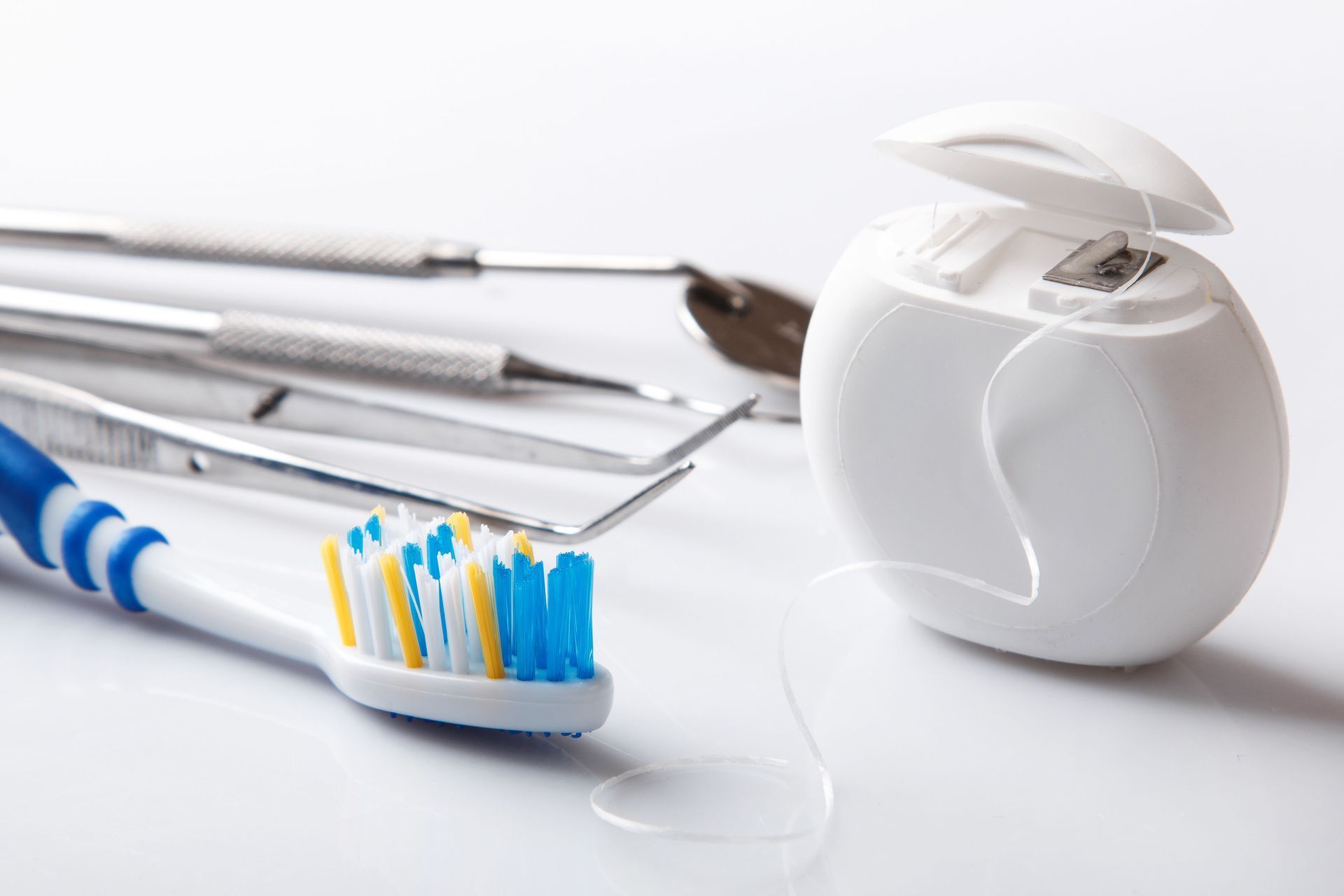5 Reasons Why Dental Implants Are Worth the Investment
In recent decades, the realm of dental health has undergone profound transformations, primarily due to modern advancements such as dental implants. These innovations play a critical role in addressing tooth loss, a concern that can impact individuals both aesthetically and functionally. Dental implants provide a robust, durable solution, significantly enhancing oral health and contributing to an individual's quality of life. The significance of these innovations cannot be overstated, as they cater to the growing demand for reliable and effective tooth replacement. Dental implants are increasingly becoming the go-to solution, as demonstrated by their popularity in the US, with over 3 million implants placed annually, according to the Cleveland Clinic.
Whether due to accidents, diseases, or decay, tooth loss is a common issue that demands attention. While traditional solutions like dentures and bridges have served their purpose, they often come with drawbacks, including discomfort and maintenance challenges. Dental implants, however, represent a revolution in dental care, offering benefits that far exceed those of conventional solutions. From enhanced longevity to improved appearances and overall oral health, implants provide undeniable advantages. As we delve into this comprehensive article, we will explore why investing in dental implants is a prudent decision for long-term oral health.
The decision to opt for dental implants is not merely a choice of convenience or aesthetics; it is an investment in one's future well-being. A thorough understanding of this investment's multifaceted benefits can help individuals make informed choices. This article will unravel the myriad reasons why dental implants are considered a sound investment. From improved oral health to enhanced aesthetics and psychological benefits, we will cover all critical aspects. Join us as we explore how dental implants pave the way for a better quality of life.
1. Materials Used in Dental Implants
The longevity of dental implants largely stems from the superior materials employed in their construction. Titanium, commonly used for the implant post, is renowned for its strength and biocompatibility. This metal integrates seamlessly with the jawbone, ensuring durability and stability over time. Additionally, zirconia is sometimes utilized for its aesthetic appeal and similarly robust characteristics. Together, these materials enable implants to withstand the rigors of daily oral activity, offering patients a long-lasting solution.
The use of high-quality materials is crucial to the implant's success rate and longevity. Unlike other dental solutions that may require periodic replacement or adjustment, implants are designed to endure. The meticulous engineering behind these materials ensures they can mimic the natural tooth structure and function effectively over the years. Consequently, patients can enjoy the benefits of a reliable tooth replacement, free from concerns about frequent maintenance or premature failure. This aspect alone makes dental implants a superior investment.
In the realm of dental care, the choice of materials is paramount, influencing both outcome satisfaction and longevity. Dental implants boast an unparalleled blend of strength and adaptability, owing to materials that have withstood extensive testing and research. This level of reliability provides a peace of mind that other temporary solutions fail to deliver. Consequently, individuals who choose implants can rest assured in their decision, knowing they have opted for a solution built to last. With proper care, implants can remain functional and aesthetically pleasing for a lifetime.
2. Performance in Comparison to Other Prosthetics
When considering tooth replacement options, the performance of dental implants is unmatched by other prosthetics. Unlike dentures, which may slip or become uncomfortable over time, implants provide a stable and permanent fix. This stability promotes confidence during oral activities such as speaking and chewing. Compared to bridges, which can impact surrounding healthy teeth, implants act independently, maintaining the natural tooth structure. These performance benefits underscore why implants are favored as the gold standard for tooth replacement.
Furthermore, dental implants eliminate many of the complications associated with traditional prosthetics. The issue of tooth movement common with dentures is absent, as implants are securely anchored into the jawbone. This integration ensures that implants function almost indistinguishably from natural teeth. Bridges, while effective, require alteration to adjacent teeth, potentially leading to complications down the line. Dental implants, by contrast, preserve natural dental architecture, highlighting their superiority over other options.
The choice between implants and other solutions often boils down to factors such as comfort, functionality, and longevity. Dental implants consistently outperform their counterparts in all these aspects. The personalized fit and natural feel contribute to their widespread approval among dental professionals. Additionally, the functional advantages, such as maintaining proper bite alignment and oral health, are significant factors in their favor. For anyone seeking a tooth replacement that feels natural and supports overall oral health, implants remain the preferred option.
3. Long-term Cost Efficiency
Initially, dental implants may appear as a significant financial undertaking compared to other prosthetics. However, when evaluating their long-term benefits, implants often prove to be more cost-effective. Traditional solutions like dentures and bridges typically involve recurring maintenance and replacement costs. In contrast, the durability and permanence of implants imply fewer additional expenses over time. This long-term perspective is essential when considering the initial investment in dental implants.
The cost efficiency of implants extends beyond mere price comparisons; it influences daily life quality and oral health as well. Regular replacements or repairs associated with other solutions can become a financial burden over time. Dental implants, however, offer a one-time investment that yields returns in the form of durability and functionality. This financial stability is crucial for individuals seeking assurance in their oral health decision-making. The peace of mind that comes with this reliability is financially and personally rewarding.
Moreover, the value proposition of dental implants becomes evident in their ability to prevent additional dental issues. By maintaining the integrity of the jawbone and adjacent teeth, implants minimize the risk of further complications. Over the years, this preventative aspect can lead to substantial savings on dental treatments and procedures. Thus, while the upfront cost may be a consideration, the downstream financial benefits underscore the investment worthiness of dental implants. Ultimately, the cost-efficiency argument solidifies implants as the prudent choice for those seeking lasting oral health solutions.
4. Low Maintenance Requirements
One of the lesser-known advantages of dental implants is their minimal maintenance requirements. Maintenance simplicity is a significant factor for individuals seeking hassle-free dental solutions. Unlike dentures, which require regular adjustments and care, implants fit seamlessly into the daily oral hygiene routine. Normal activities such as brushing and flossing suffice to maintain implant health and functionality. This ease of care is appealing to those who value both convenience and oral health.
The straightforward maintenance contrasts sharply with other prosthetic options, reducing the potential for complications. Dentures, in particular, demand meticulous cleaning and handling to prevent damage. In contrast, implants offer a secure, permanent solution without the added daily responsibilities associated with removable prosthetics. By integrating smoothly into existing routines, implants improve both quality of life and oral hygiene. This simplicity further reinforces their appeal as the preferred tooth replacement solution.
Importantly, the low maintenance aspect isn't merely about convenience; it affects long-term oral health outcomes. Proper care ensures that dental implants remain effective for decades, providing continuous value. Additionally, the design of implants helps preserve surrounding dental structures, preventing issues that might arise from neglect or improper care. Simple practices, reinforced by the implant's longevity and stability, promote both low maintenance costs and high satisfaction levels. In this regard, dental implants prove superior to other tooth replacement solutions.
5. Implant Success Rates
The high success rate of dental implants is a compelling reason for their widespread adoption. With advancements in technology and materials, the success rate for implants has risen significantly. As more than 3 million implants are placed annually in the United States, according to the Cleveland Clinic, the data underscores their reliability. Studies consistently show a success rate of over 95%, a testament to both the procedure's efficacy and the quality of materials used. This impressive success rate surpasses that of many alternative tooth replacement methods.
Be sure to reach out to Jay I Swanson, DDS, MD, FACS today for more information on our professional dental implant services!












